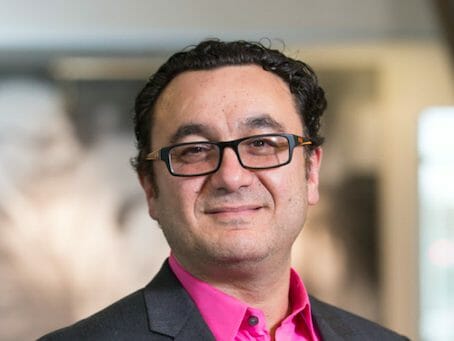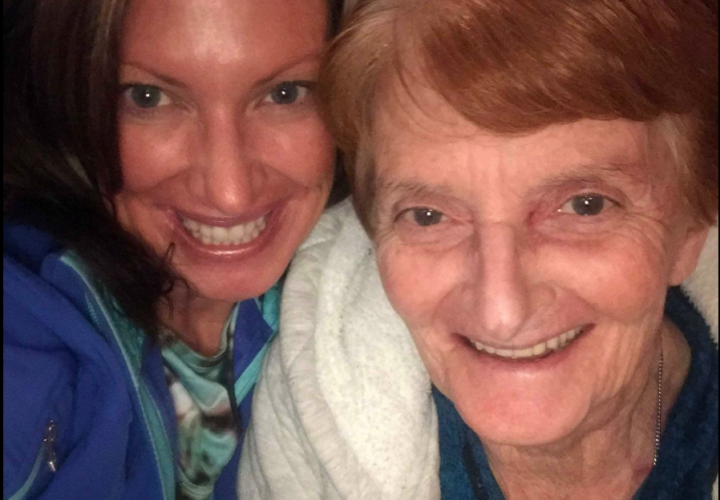As research into Alzheimer’s advances, new screening technology allows for earlier detection of the disease. But with no cure yet discovered and a social stigma attached, some people avoid dementia screening.
Being Patient spoke with Dr. Malaz Boustani about his research into Alzheimer’s screening and why choosing to ignore screening options could be a risk.
Being Patient: You’ve done research on dementia and testing people for it. Tell us a little about what you’ve found?
Dr. Malaz Boustani: I’ve been going after the benefits and harms of dementia screening in primary care for almost 20 years. I started in North Carolina, and I conducted a series of nine systematic evidence reviews to organize a report for the United States Preventive Service Task Force and literally answer the question, “Is there sufficient data to understand the benefits and harms of screening people without them asking for the screening.
So technically the question we tried to address—you are a primary care patient going to see your doctor in your typical clinic, you don’t have any perception of symptoms, so any memory problems or other cognitive symptoms, and your family members are not bringing anything to the attention of your primary care doctor. Should the primary care doctor ask you and screen you for the presence of dementia, and does the benefit of the screening outweigh the potential harms?
Being Patient: Do you find that most people don’t actually want to know whether they have dementia?
Dr. Malaz Boustani: We actually surveyed them. Around 2006 or so we got funded by the National Institutes of Health (NIH) to measure the attitude of the public toward screening for dementia—do they want to, or do they not want to—and we looked for two types of groups.
We surveyed the same primary care patients 65 and older attending their same clinic, and we surveyed those who already had a family member with Alzheimer’s disease. And when we asked the question, “Would you like to be screened for Alzheimer’s disease?” almost 85 percent of those without affected family members said yes. Those with family members who had Alzheimer’s were less optimistic. Close to 75 percent said they would like to be screened, and then when we said, “Oh, you said you’d like to be screened, let me go ahead and screen you,” that number dropped a little bit when it became a reality.
But then we asked the 20-30 percent who said no why they did, and the folks who said no did not believe that there would be benefits. That was the main driving force for them. But then, the big surprise for us in 2005, and it’s continued until now, after we screened the folks who did accept the screening, around 13 percent screened positive. We said “Alright, you screened positive. It’s not 100 percent that you have Alzheimer’s, so let’s bring you over or have us come to you and conduct diagnostic assessment.”
And our biggest surprise was that at that time, 50 percent of people who screened positive refused to come back for diagnostic assessment. When we tried to figure out why, we discovered that the driving force behind their decision was the perception of stigma, and what I call the three D’s. These folks felt that if they had Alzheimer’s disease, they would lose their driver’s license, they would lose their home, meaning dependency, and they would lose their dignity, people would think they’re crazy.
The folks who have these perceptions were the ones who had had the highest chance of refusing diagnostics. That was a big surprise for us, so we repeated the test again and again, and instead of getting better things actually got worse. Our last survey attempt showed 70 percent of people who screened positive refused diagnostic assessment.
What Are the Risks of Not Getting a Diagnosis?
Being Patient: According to the research, how important is it to get a diagnosis? The cynics out there will say that there’s not a cure, there’s not really much you can do. What do you have to say to that?
Dr. Malaz Boustani: That really tells you how much perception drives everything else. When we end up asking the question about what we want from treating Alzheimer’s disease, if the answer is that people want a cure for the disease, then the answer we have to give is that we do not have a cure for the disease. The same way that we do not have a cure for coronary artery disease. We do not have a cure for diabetes. We don’t have a cure for hyperlipidemia.
These chronic diseases we live with, we can’t cure them. But if you ask the question “Is there anything I can do to reduce or cope better with the cognitive disability, the functional disability, and the behavioral disability,” the answer is absolutely yes. We actually conducted a randomized control trial in 2006 where we put together a really nice model of care for taking care of patients of Alzheimer’s disease and their loved ones, and our results were outstanding.
We reduced the behavioral and psychological symptoms of Alzheimer’s disease patients 3-4 times more than a drug. We ended up reducing the stress of the caregiver by almost 50-90 percent within 6-12 months. We were able to keep patients in their home longer. We were able to keep them away from the hospital. And even for a health plan and insurance, we were able to save them somewhere between $1,500-3,000.
Being Patient: What happens if people don’t get tested? If you are on the road to dementia but just don’t want to know, what does that mean to them and their health?
Dr. Malaz Boustani: Right now I think we have some data to look at the unintended consequences. The first big one is that most people with Alzheimer’s disease do not have just Alzheimer’s. They often have other chronic conditions, and most of these chronic conditions require medication adherence. If your cognition is not perfect and you’re not doing well, there’s a good chance that you’re not going to be able to take the right medicine at the right time in the right place.
And therefore the management of your other chronic condition and the additional disability from this other chronic condition will make your Alzheimer’s disease worse, will make you go to the hospital, will make you transfer to a nursing home or assisted living facility much faster. That is one of the unintended consequences of somebody living with Alzheimer’s and another chronic condition and managing their condition on their own without support and without the involvement of family members.





